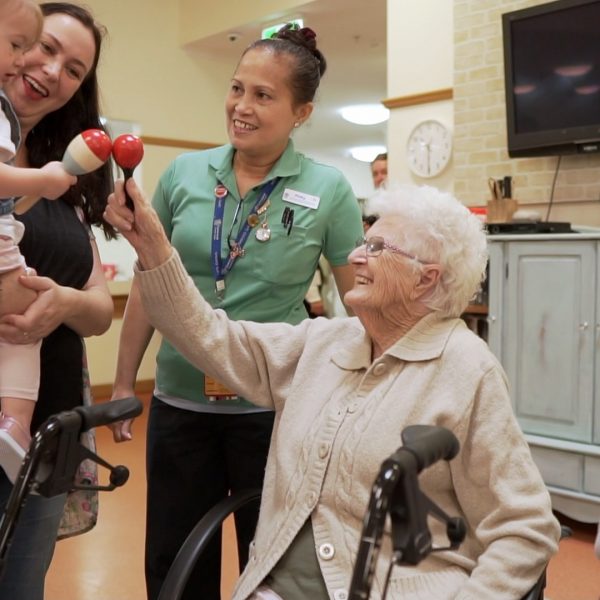New qualification recommended by Griffith, combining aged care and early years

New career pathways that combine aged care and early childhood education and care (ECEC) may be the way of the future, Griffith University researchers have said, capitalising on recent interest in intergenerational care practice.
Using research conducted into the benefits of intergenerational care, which analysed programs combining aged care and child-care, Professor Anneke Fitzgerald and Dr Katrina Radford from Griffith Business School said their findings recommended a training qualification for such a career.
Professor Fitzgerald said the “great benefits” to both older and younger people made the researchers think about the sustainability of intergenerational care programs. One was to sure up the offering is to ensure the workforce for both ends of the spectrum is well prepared and skilled, she said, something that may be best achieved with a specific career path that underwrites the intergenerational practice models in Australia by developing intergenerational practitioners.
“Intergenerational care programs offer an effective, alternative model of care in Australia, so this new career pathway may address shortages in both child-care and aged care,” she added.
An evidence-based toolkit has been published by the researchers, designed to support those who want to establish a program connecting younger and older people. It includes the cost to set up and run a program as well as a step-by-step guide on how to plan, deliver and evaluate an intergenerational practice program.
“We are also able to share tips on how to conduct the program. We connect three-to-five-year-olds with people over 65 in different modes,’’ Professor Fitzgerald said. While there is no specific “best model” researchers found that programs which run from 8-10 weeks, 1.5-2 hours per week, with one-on-one interaction between younger person and older person tend to give the most favourable results.
“High intergenerational engagement is achieved when doing one-on-one activities, such as reading. There’s less engagement when doing group activities such as dancing or ball games. But we recommend a mix of high, middle and low level of engagement,” she added.
The benefits of older and younger people learning in a reciprocal way were highlighted to Dr Radford throughout the research.
“We already know a lot about how younger people learn through pedagogy. However, we don’t know a lot about how older people learn and there is no real established eldergogy as yet,” she said, posing her intergenerational practice research as an ideal place from which to start developing a theory that supports older people (re)learning.
An understanding of brain development and how brain functions grow and decline, and how this is influenced by mixing generations could also form part of the qualification, Dr Radford said.
“We believe bringing together younger and older people has great benefits for both. For younger people, in addition to tapping into the wisdom of older people, they are less likely to become delinquent during teenage years. Older people are less socially isolated when they mix with younger people. As a result, they may very well delay cognitive and associated physical decline, remaining more active and happier.”
To read more about the benefits of intergenerational practice, please see here.
Popular

Policy
Practice
Provider
Quality
NSW Government launches sweeping reforms to improve safety and transparency in early learning
2025-06-30 10:02:40
by Fiona Alston

Quality
Provider
Policy
Practice
WA approved provider fined $45,000 over bush excursion incident
2025-07-01 07:00:01
by Fiona Alston

Workforce
Policy
Quality
Practice
Provider
Research
ECEC must change now, our children can’t wait for another inquiry
2025-07-02 07:47:14
by Fiona Alston













